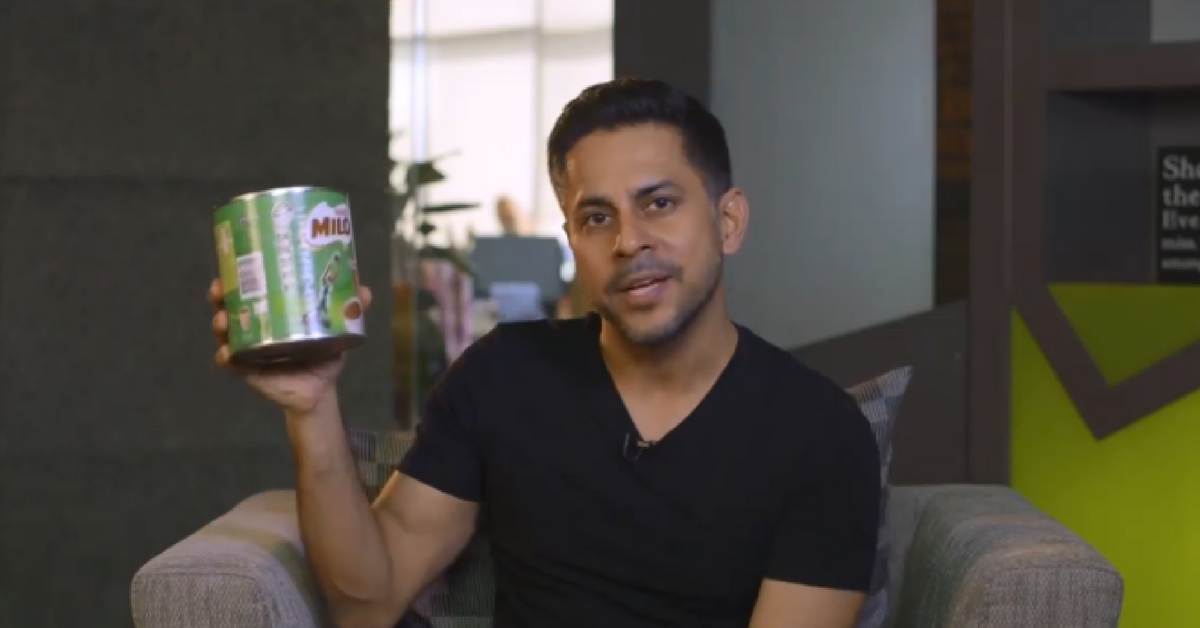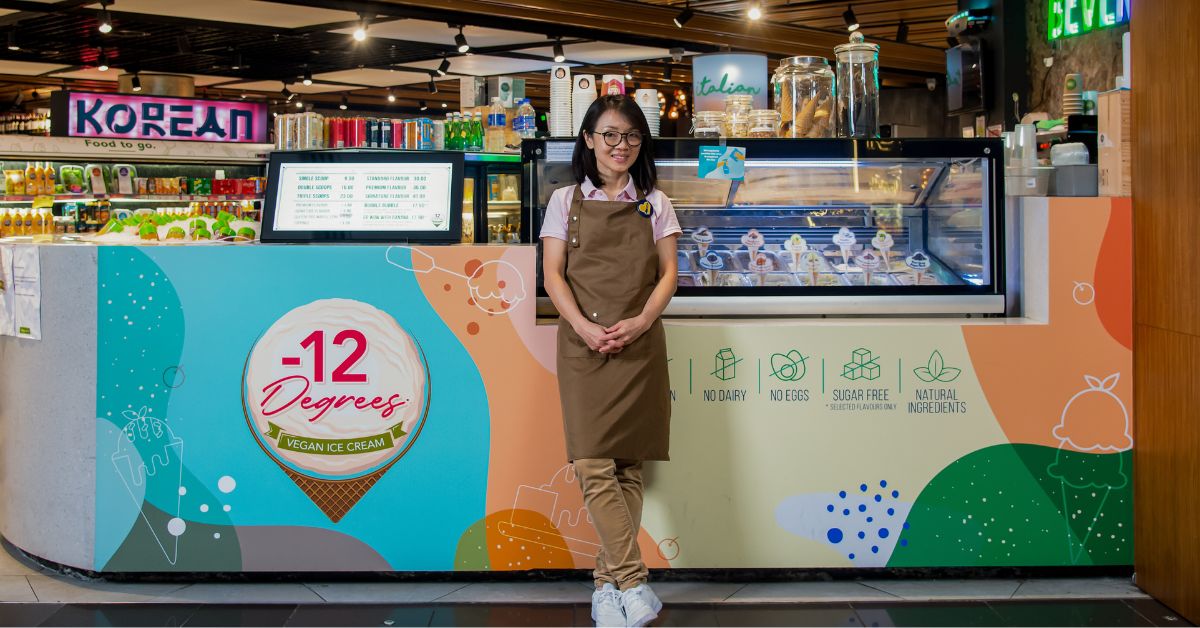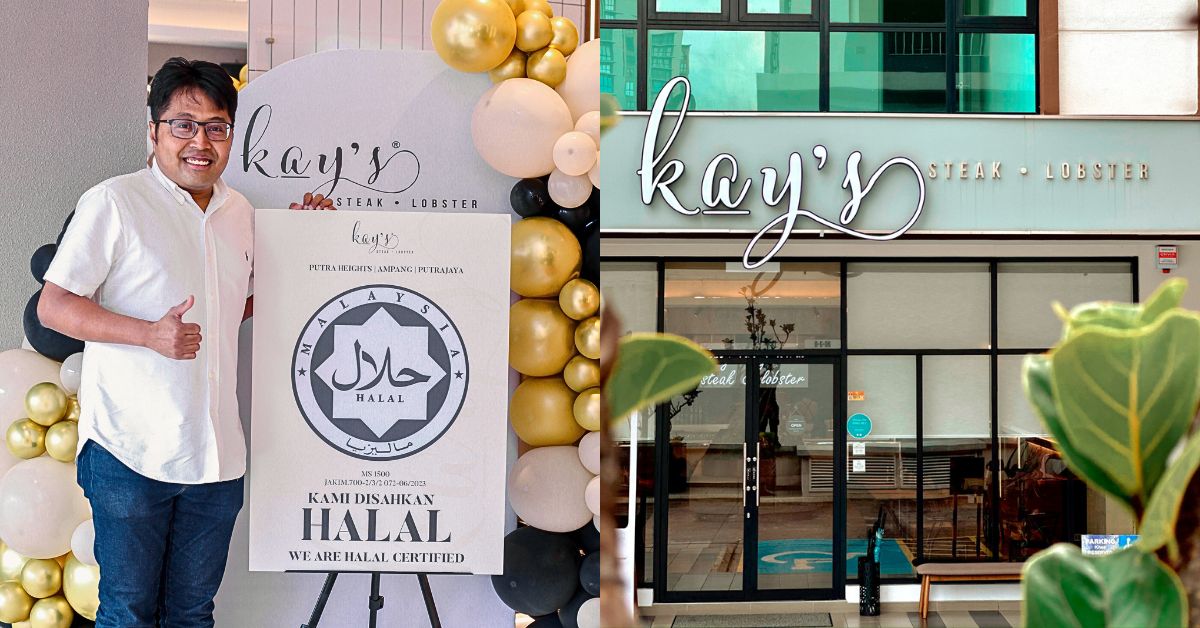- There has been an ongoing public argument between Nestlé and Mindvalley’s founder, Vishen, about the healthiness of Milo.
- An original video and article published by New York Times was meant to highlight a conflict of interest in Malaysia’s nutrition research, but unfortunately the conversation has now simplified into ‘how healthy is Milo?’
- Vishen encourages Malaysia to speak out to Nestlé about stopping the marketing of their sugar-full products as “healthy”.
These days, all everyone can talk about is how healthy Milo is.
The whole train started with an explosive exposé by the New York Times (NYT). It questioned the relationship between a very influential Dr. Tee E Siong, Malaysia’s leading nutrition expert who has helped build the Malaysian dietary guidelines, and how many of his researches were funded and reviewed by big food corporations.
The conflict of interest is clear here. If the studies are reviewed by big food corporations before reaching us, then can they really be trusted to represent the whole truth?
Then Vishen Lakhiani, founder and CEO of Mindvalley, repackaged that information into a concise video that focuses attention on things that even the average Malaysian can relate to—the food that we eat every day.
In it, he highlighted Nestlé Stars and Milo, both are sold as healthy options for Malaysia even though, Vishen argues, their high sugar content. The video that was produced also did not mention Dr. Tee, who featured heavily in the original article.
Vishen’s video has since gone viral.
Since then, Nestlé has issued a rebuttal (which only highlights Milo’s sugar content). Vishen posted another video to question Nestlé’s statement, and the whole thing has cumulated into a press event that will be held by Vishen tonight.
We reached out to a representative of Mindvalley, who has informed us that the event tonight will be sharing results of some “interesting experiments” they’ve conducted.

However, as the debate rages on (and both camps are very passionate), here are some things to consider about everything that’s going on.
1. It never really was about Milo at all.
Unfortunately, it feels like the whole point of the article and accompanying video has been through a virtual game of Telephone, and now we’ve lost the original point.
Neither the article or the video was meant to be a hit piece on Milo in particular. Instead, they were highlighting the disturbing relationship between big food corporations and the people who were supposed to protect the Malaysian consumers. Milo was just a convenient example—a product that is said to be chock full of sugar, but marketed as a healthy drink.
The NYT article states that our health minister did not think that it is the government’s job to be the watchdog over food companies.
According to the article, nutritionists worry that Malaysia’s dietary guidelines aren’t as tough on sugar as they could be, partly designed by an influential man in the pocket of big food corporations.
Both the video and the original article highlighted Nestlé Stars as well, but somehow this particular tidbit escaped public attention.
The original article shines a spotlight on the relationship between those in authoritarian positions in the country and big food companies—and how the public is more obese because of it.
Now though, the conversation has devolved into how healthy—or unhealthy—Milo is, and it defeats the purpose. Instead, what people should consider is how much sugar they’re unknowingly including in their diets, and how this could impact them.
2. The original video was meant to sell a programme.
Before you get up in arms, we’re not saying that the video didn’t make any good points. The actual sugar content in Milo is currently being debated pretty publicly, but the sentiment does remain—do Malaysians actually know how much sugar they’re consuming in a day? Should they redefine what they consider healthy, in light of some of these exposes?
But it is important to remember what the original context of the video was: to sell a Eric Edmeades’s programme called Wildfit, which enjoyed a week-long run on Mindvalley’s website.
The programme that is being sold by the original video might have good content. In it, Malaysians might be able to discover the types of food they should actually be eating. It could help improve their health and reduce obesity in Malaysia.
But it cannot be denied that Mindvalley stands to profit off Malaysians thinking that they don’t understand what healthy food is, and good way to find out was to partake in this programme that has since ended.
This might explain why a certain amount of simplification in Vishen’s original video has since led to certain parties questioning the facts presented by Vishen, which is said to cause misunderstandings.
3. But its virality has now led to a campaign encouraging Malaysians to speak up to Nestlé.
When Vishen released the second video on the 2nd of January (after the masterclass has ended) it was in response to Nestlé’s press release regarding how the sugar content could have been misconstrued.
According to Nestlé, once Milo is diluted in water, then the actual sugar content consumed is only 6% instead of 40%, as stated by Vishen.
This was when Vishen took up a more hardball stance against what is deemed as misinformation presented by Nestlé. According to Vishen, Nestle did not acknowledge the addition of maltodextrin in Milo (a substance he asked everyone to look up, which we did. It’s been FDA-approved as a safe food additive). He also pointed out that Milo is typically consumed in Malaysia with added sugar, like in condensed milk.
You can check out the video for yourself, but what is more interesting is the end of the video.
Instead of trying to sell a class held by Mindvalley, Vishen ends with a rallying cry—to speak out about how you want better from corporations. He encourages viewers to spread the message however they see fit.
Vishen highlights some examples—how mothers in India were malnourishing their babies by feeding them Nestlé’s formula milk instead of breastmilk. How Nestlé’s Nesquick ad was banned in the UK for claiming that it’s a “great start to the day”.
He states that they were forced to change their practices because the “people like you would not let a large corporation get away with the lies”.
Of course, sharing the video isn’t the only way to call out Nestlé on any problematic practices. But if the country does band together with one unifying message, it might help solve at least one problem. We’ll also have to make sure that other brands like Kelloggs, PepsiCo, and Dr. Tee (highlighted as one of the key reasons behind this obesity epidemic in the NYT article) don’t get off the hook.
4. Food companies aren’t the only reason that we’re obese.
Milo, or rather the issue that Milo represents—big food companies pretending that their sugar-laden products are healthy—may have caused a massive outrage in a Malaysian landscape that increasingly looks towards a healthier culture. But make no mistake, our obesity doesn’t just stem from mismarketing.
As many of the FB comments pointed out, it’s simply that our lifestyle isn’t healthy. Even our traditional snacks are usually deep-fried treats dipped in sugar, and lets not even talk about the delicious, oily, gravy-swamped goodness we consider our lunch and dinner.
We drive everywhere we go, go up buildings with elevators, and then we sit down to eat what basically amounts to spoonfuls of sugar. Let’s be real, part of why Malaysia is obese is because healthiness isn’t part of our consciousness.
The mismarketing of healthy food is certainly a big issue, and the NYT article was crucial in uncovering the depths that big food companies would go not only lie to us, but embed these lies so deep into our consciousness that we stop even questioning it.
It is also only a small cog in the underlying problem that is our Malaysian culture.
5. Who do you believe anymore?
Now, Malaysians are even pressuring the Ministry of Health to issue a final verdict about whether Milo is actually healthy or not, between information provided by the two companies and all of the social media posts going around refuting or agreeing with one or the other.
Here’s the thing. When you put all of your faith into corporations or authorities to tell you what you can and can’t eat, you’re just opening the doors for them to abuse that power.
As we’ve highlighted earlier though, Milo was never the point. In my opinion, there is no such thing as healthy or unhealthy food. We don’t need to stay away from chocolate-y goodness altogether, and in certain scenarios, it might be useful.
Instead, each Malaysian needs to consider the type of lifestyle they’re living, and the right food to suit it.
We reached out to Vishen for a statement with a simple question: what can Malaysians do?
His answers echo our own thoughts.
“Malaysians have need to have basic nutritional information. Most don’t, and the level of nutrition education here is far below that of which is now emerging in the west,” said Vishen.
In his example, he talks about how Americans used to think that fat was bad, and banished it from their diets—and actually led to higher obesity rates. Food companies were happy to oblige those studies with fat-free food, filling them with sugar instead.
Now, the truth is out and westerners are taking more care to avoid sugar and carbs, and actually discovering that fat can be good for them.
Here’s the thing. You don’t have to take it from me, or from Vishen. Malaysians need to take their nutrition into their own hands, and actually figure out what works for themselves.
6. The government needs to play a role too.
In this, we agree with Vishen as well.
“As the article exposed, the Malaysian government may not be making the right decisions, because Dr. Tee is basically being funded by big food. We need independent decision-makers to make these calls. But given that Malaysia one of the highest consumers of sugar and that we’re the fattest country in Asia, this call must come soon.”
Using another article published by NYT titled “In Sweeping War on Obesity, Chile Slays Tony the Tiger“, Vishen references it as a way that governments can play a part. Chile spruced up their labelling laws, and stopped companies from using cartoon characters like Tony The Tiger to market to kids.
“And it’s starting to work,” said Vishen. It’s causing over 1.5k food products in Chile to have their sugar content reduced, including Nestlé’s Milo, because the government stood up to obesity.
###
If the allegations are true, Malaysia’s people would not be the first country that was a victim to corporate greed at the expense of our own lives. But when there’s such a fraught tension between two parties, honestly it’s more important that Malaysians take this lesson:
After an exposé like this, we hope that this is a wake-up call for Malaysians to start thinking, really thinking, about what they’re putting in their mouths, and where their priorities should lie in the future.
Feature Image Credit: Mindvalley









